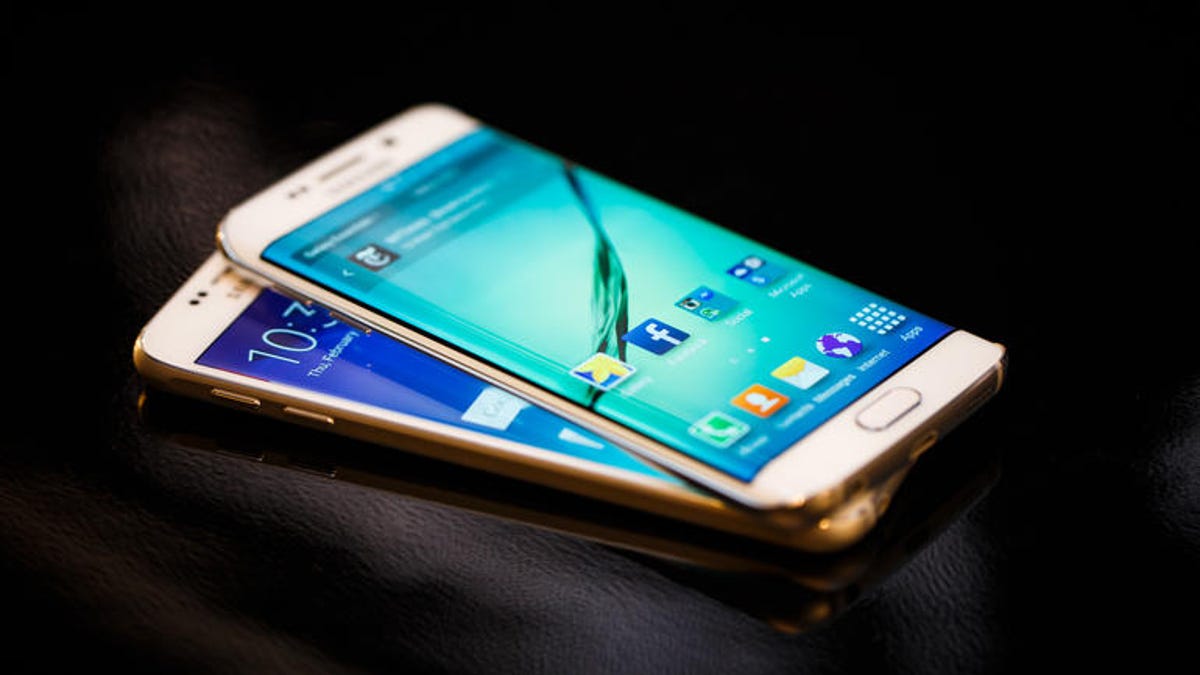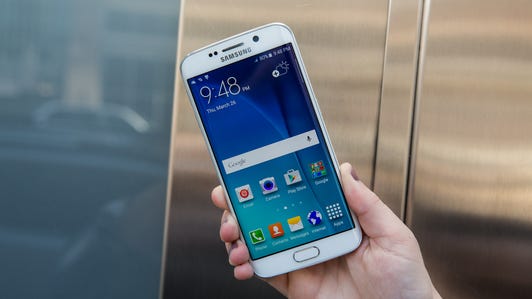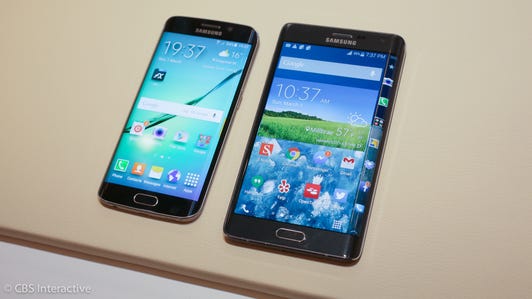
Josh Miller/CNET
BARCELONA–Now it’s Samsung’s turn to take a stab at mobile payments.
The world’s largest smartphone manufacturer on Sunday unveiled Samsung Pay, its own take on allowing you to pay for goods and services by waving your smartphone near the register instead of swiping a credit card. The announcement comes alongside the unveiling of the Galaxy S6 and Galaxy S6 Edge, which will be the first phones to use the feature.
Read CNET’s full coverage of Mobile World Congress 2015 here.
Samsung Pay will launch in the US and South Korea in the summer, with Europe and China to come later.
Samsung is just the latest major technology player to jump into mobile payments, which has languished for years with trials and limited deployments before Apple injected energy and raised the consumer awareness with its Apple Pay feature, found on the iPhone 6 and iPhone 6 Plus. For the likes of Apple and Samsung, the hope is that the addition of yet another feature will further build customer loyalty at a time when competition for smartphone customers is fierce.


Now playing:
Watch this:
Wireless payments come to the Galaxy phones
1:15
“Samsung Pay will reinvent how people pay for goods and services and transform how they use their smartphones,” JK Shin, co-CEO who runs the IT and mobile divisions at Samsung Electronics, said in a statement.
Samsung believes it has an advantage with its system because its system, which it obtained through the purchase of LoopPay last month, allows the Galaxy S6 and Galaxy S6 Edge to work with many more merchants and stores. Samsung Pay will use a near-field communication, or NFC, chip to talk with compatible registers. But it also uses a LoopPay technology called Magnetic Secure Transmission that works by holding the phone near a traditional card swipe reader, essentially making it backward compatible for nearly all payment terminals..
Samsung said it has the potential of being accepted at 30 million merchant locations around the world.


JetBlue
In comparison, Apple Pay also employs an NFC chip into its smartphone. The dilemma is there are still few registers that have the technology, which keeps adoption and usage limited. Apple CEO Tim Cook said in the last quarterly conference call in January that there were 200,000 acceptance points for Apple Pay, although its deployment has been limited to the US.
Like Apple, Samsung has lined up several partners to back its payment system. Payment networks Visa and Mastercard have committed to Samsung Pay, as have financial players such as American Express, Bank of America and JP Morgan Chase.
Both Visa and Mastercard were easily able to move to Samsung Pay, since they did much of the heavy lifting to make mobile payments work with Apple.
“This is the kind of momentum we need to go from a science project to reality,” said James Anderson, senior vice president of shared platform services for Mastercard.
Double-edged sword: Samsung’s curved Galaxy S6 Edge (pictures)






“We see the launch of Samsung Pay as another significant milestone that could lead to greater consumer adoption of mobile payments — especially in the US where consumers are demonstrating an increased interest in using mobile devices to make secure Visa transactions,” said Bill Gadja, senior vice president of innovation and strategic partnerships for Visa.
Samsung said it would not keep the personal account numbers on the customer’s device, and like Apple, uses a secure token with random information instead of the card data to make financial transactions.
Users get started by inputting their cards into the smartphone. They have to swipe up from the bezel to open the Samsung Pay app, allowing them to choose a payment card and authenticating with the fingerprint sensor in the phone — just like Apple Pay.


Now playing:
Watch this:
Samsung Galaxy S6, S6 Edge conquer metal and glass
2:10
While Apple Pay has been progressing slowly, the mobile payments category is filled with companies that have struggled getting their services adopted. That includes heavy hitters such as Google, and the US wireless carriers such as Verizon Wireless and AT&T, which recently merged their efforts.
Samsung is hoping its technology helps it avoid the same kind of pitfall.



